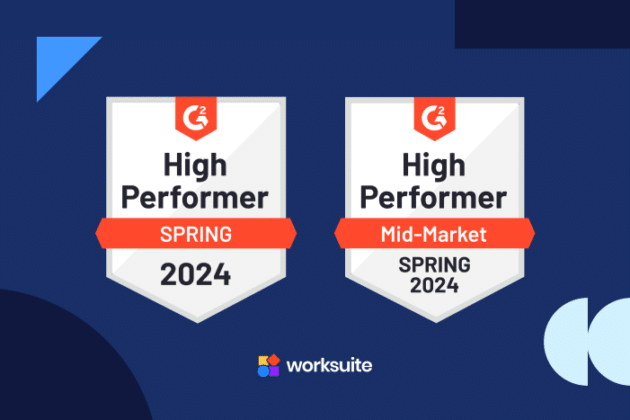
Does An Independent Contractor Pay More Taxes Than An Employee?


For independent contractors, taxes can be very different from what they would pay as an employee. But do they get to take home more pay overall as a freelancer?
This is a tricky thing to measure, as it can vary from country to country depending on the tax rules and of course on how the independent contractor manages his or her business accounting. Net earnings will vary depending on how a freelancer has structured their business, for example as an LLC or a solo business owner, and how well they plan their tax minimization strategies.
For example, a freelancer using a professional accountant might pay less taxes than a freelancer calculating their own taxes, purely because the accountant knows the full extent of business expenses that can be claimed back each year and offset against the total tax amount.
In this article, we’ll take a look at some of the tax specifics for the countries you might
Taxes for employees vs independent contractors
As an employee, you don’t tend to think too much about tax. The correct taxable amounts for federal tax and government initiatives are taken out of your salary by your employer before it reaches your bank account.
Freelancers, on the other hand, need to be vigilant about how much tax they need to pay out of their gross earnings, and when these payments are due. As most freelancers have varying workflows from month to month, they also need to ensure they’re paying the correct amount of tax at the right time to avoid unnecessary penalties.
In most cases, self-employed contractors will pay a slightly higher tax rate than employees on paper – but overall they typically pay a lower amount of taxes due to business tax breaks and expense deductions.
Common tax deductions available for independent contractors
Freelancers only pay tax on their profits – not their total earnings. Common deductible business expenses can include a wide range of things including:
- Home office supplies
- Marketing (online ads, flyers, design work)
- Hardware (laptop, ring light, video camera, microphone etc)
- Vehicle expenses and travel costs
- Mobile phone and internet bills
- Meals and entertainment
- Training and professional development
- Water bills
- Heating bills
- Gas bills
- Home insurance
- Rent
- Mortgage
- Property taxes
- Repairs and maintenance
- Phone bills
- Internet bills
United States
In the United States, freelancers have to pay self-employment tax, which will drive up their nominal tax rate compared to employees. Additionally, tax rates and deduction rules can vary considerably between states.
Employees and freelancers across the country all need to pay federal, state, and local taxes for the most part. These amounts will differ between states and counties, and the final tax due will depend on the individual’s total income.
One key difference is the timing and frequency of tax filing and tax payments. Self-employed freelancers are generally required to file and make quarterly estimated tax payments. For this reason, freelancers need to be especially vigilant with their tax planning and payment dates to avoid unnecessary penalties and interest charges from the government.
Employee taxes
Employees don’t need to worry about the different types of government tax, as this is taken out of their salary automatically.
At a federal level, taxes are taken out at a rate of between 10% and 37% depending on earnings.
At the state level, most states in the USA require an additional tax on employee earning at rates set out for their specific states. There are only 9 states who don’t charge income tax, but this can mean that cost of living is overall higher for individuals.
Local taxes are also imposed in some areas in addition to state and federal taxes.
On top of these compulsory taxes, employees also get taxed for Social Security and Medicare contributions.
Freelancer taxes
Freelancers pay taxes at the same federal, state, and local tax rates as employees, but then have the added extra burden of the self-employment tax.
Things can get tricky if freelancers live in one state, and work for companies in other states. Each state may lay claim to tax the income earned / paid.
As a rule of thumb, freelancers should set aside at least 30-40% of their total income to cover their bases at tax time. This can vary based on how much the freelancer claims for business tax deductions. Business tax deductions reduce taxable income, thereby reducing taxes owed.
Sales tax
Most US states require freelancers to pay sales taxes if they provide anything other than services to clients (e.g. physical products).
However, freelancers in Hawaii, South Dakota, New Mexico, and West Virginia will also need to pay sales taxes when providing services. This means that contractors will need to pay for and obtain a permit to operate their business. Savvy freelancers include this sales tax charge on invoices to their clients, including it in the contract with the client as well.
Self-employment tax
At the time of writing, the self-employed tax rate (federal tax rate) is 12.4% for Social Security contributions, and 2.9% for Medicare. That’s a total of 15.3% just to cover the basics of operating a freelance business.
If you’re an employee, your employer will pay half of these taxes for you, but freelancers need to cover the entire cost themselves.
The good news is that in many cases, contractors can deduct half this amount from their total income.
Freelancers will also pay different tax rates depending if they’re operating as a sole business owner, or an LLC.
While there are extra costs associated with setting up and managing a company structure, it opens up possibilities for independent contractors to take advantage of even more tax savings, especially if they apply to be taxed as an S-corp.
United Kingdom
Employees and freelancers both need to pay the same basic taxes, including UK tax and National Insurance Contributions. Neither need to pay any taxes if they earn below the threshold of £12,570.
Employee taxes
The tax rates for employees is the same across the UK, except for Scotland.

Independent contractor taxes
In addition to the above tax schedule, self-employed freelancers also need to pay two types of National Insurance Contributions (NICs)—Class 2, and Class 4.
Class 2 is paid at a flat rate of £3.15 each week if you earn more than £6,725 in one tax year.
Class 4 needs to be paid at a rate of 10.25% on any profit between £9,880 and £50,270 in one tax year, or 3.5% on profit higher than £50,270.
Like the other countries mentioned here, freelancers can also write off business-related expenses throughout the year in the UK, and decide whether it makes sense to incorporate a company to take advantage of extra tax breaks.
Canada
Taxes in Canada are higher for both employees and freelancers according to the Organization for the Economic Cooperation and Development or OECD. On average, the net pay for an individual after tax amounts to only 74.9% of their total wage, compared with an OECD average of 75.4%.
Employees and contractors need to pay the same rates of federal tax, as well as territorial taxes which vary in percentage across the different areas of Canada.
Employee taxes
The first $13,808 of income is tax-free for any employee or self-employed individual. After that, the below tax rates apply.

Independent contractor taxes
Self-employed contractors need to take into account both income tax and CPP (Canada Pension Plan) payments. There is also an optional EI (Employment Insurance) fund they can contribute to. Depending on their business type and state, they may also be liable for sales tax.
As a guide, freelancers should set aside at least 30% of their income to cover tax obligations in Canada.
Canadian freelancers can also choose to set up as a sole contractor or a company. Both structures will allow them to minimize the taxes they pay, and allow them to claim for business-related expenses throughout the year.
Australia
The income tax rates for employees and self-employed contractors are the same in Australia, however, there are extra tax obligations that freelancers need to navigate as they grow their business.
Employee taxes
Employees in Australia don’t pay any income tax if they earn under $18,200. Once they earn over this threshold, the tax rates are as follows:

Independent contractor taxes
All revenue earned from business activities for Australian freelancers is taxed as income, but there are many opportunities to write off business expenses throughout the year.
Depending on their business structure, there are different tax rates and obligations.
Sole proprietor tax rate
Like employees, individual freelancers don’t pay any income tax until they hit the $18,200 AUD threshold, and then the tax rates in the table above will apply as they begin to earn more.
After that, the taxable amount owing will depend on:
- Revenue from their freelancer business
- Any additional income sources
- Business-related tax deductions they can offset to minimize overall tax
Company tax rate
If an independent contractor decides to set up their business under a company structure, they will pay a flat tax rate of 27.5% as long as their turnover is less than $50 million.
For this reason, many new freelancers stay as sole proprietors until they hit a tax bracket where it makes more sense to incorporate a company and take advantage of a steady tax rate.
Whether they’re a company or a solopreneur, Australian freelancers also need to take into account things like:
Goods and services tax
If an independent contractor earns over $75,000 AUD in the financial year from their business, they will need to register for GST. This means they’ll need to charge clients an extra 10% for each invoice and pass this on to their tax department when they file their GST returns.
On the upside, any business purchases made during the year can be claimed back. This will reduce the amount of GST payments owing.
Medicare
The Australian healthcare levy needs to be taken into account for freelancers who earn over $22,800 AUD a year. This amounts to 2% of the total income earned over this threshold. Freelancers need to be vigilant about this payment to ensure they’ve set the correct amount aside at tax time.
Business expenses
Self-employed contractors are able to claim for business expenses, as long as they keep good records and receipts. These include common expenses that are related to running their business, such as:
- Website hosting
- Marketing costs
- Travel and accommodation (related to business)
- Vehicle expenses
- A portion of their household rent, utilities, and maintenance costs
- Business development and training costs
- Accountant fees
With careful planning and a solid tax minimization strategy, it’s possible for Australian freelancers to earn slightly more than employees in the same income bracket.






